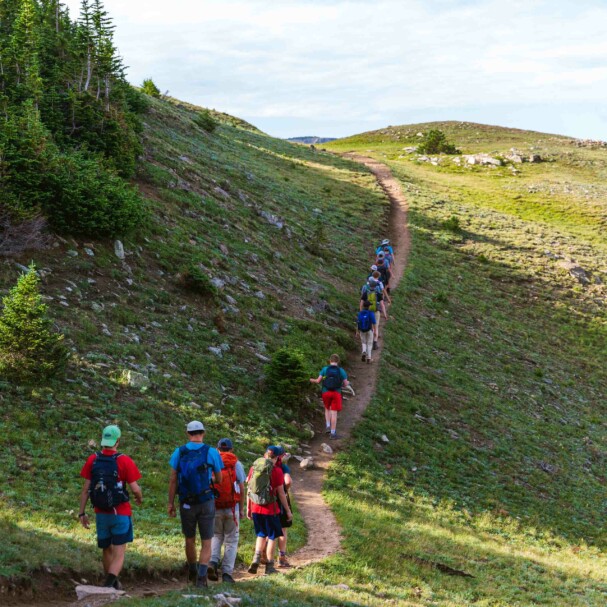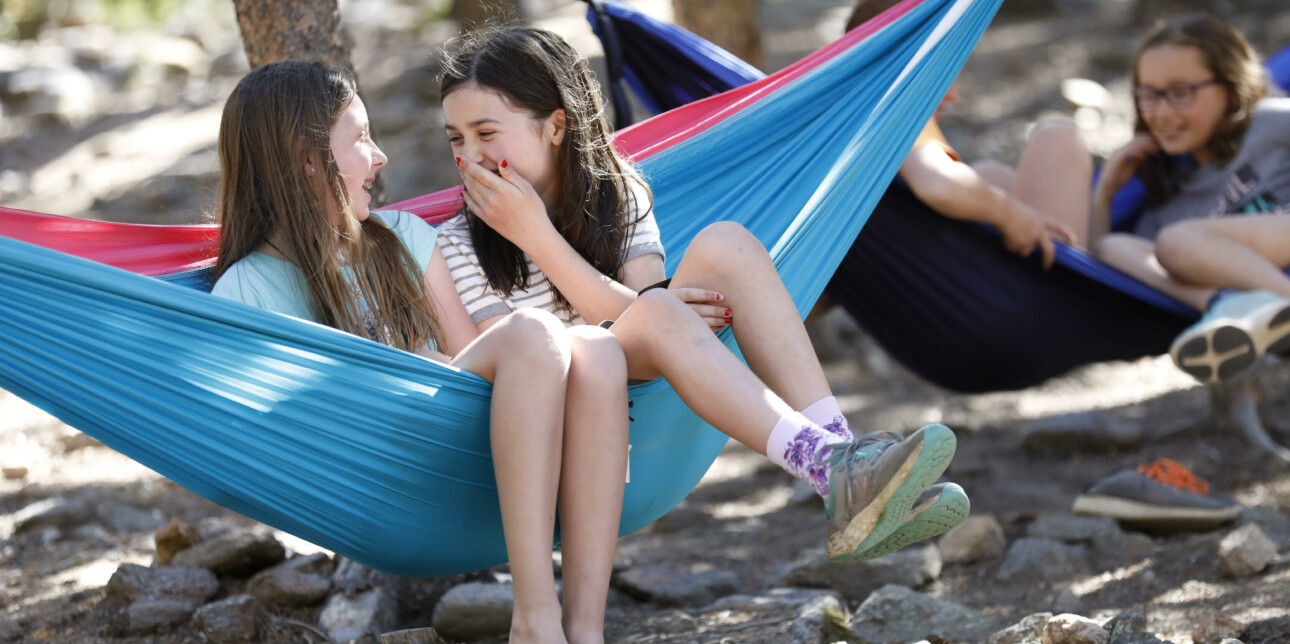With the pandemic disrupting our sense of normalcy, children’s mental health has been greatly impacted too. Over the past year, youth have faced extreme challenges, including changes to their routines and breaks in their continuity of learning. And with many practicing extreme social distancing, experts agree that for the welfare of our children, the mental health benefits of summer camp are more critical than ever.
Bob Ditter is a child and adolescent therapist who has visited over 500 camps in the United States and is often consulted by camp directors for his expertise. A national camp consultant–and friend–who has helped train our staff for over thirty years, we talked with him about the importance of the camp experience after an unprecedented and taxing year.
“If the pandemic has reminded us of anything, it is that virtual connections, including social media, leave something vital out of things for us as human beings,” shared Ditter. “The pandemic has made it abundantly clear that we listen with more than just our ears and we talk with more than just our mouths. The way we touch, our physical presence, the look in our eyes and the way we hold ourselves communicates with a subtle, yet essential richness we don’t miss until we don’t have it. This applies equally to our children, who need the social stimulation of other kids; the attention of interesting, appropriate and caring adults; and the sense of belonging that comes from being immersed in a supportive community –all of which is what a positive camp experience does when it is at its best!”
Having up-ended the foundations of their lives, the pandemic has stolen so much from our children. With limited in-person interactions, children have inevitably spent much of their time at home or online. Struggling to find genuine connection, children have started experiencing several adverse mental health issues such as heightened stress, anxiety, and depression. Summer camps, however, facilitate and nurture the kinship we crave and that children need, especially as of late, because they offer a technology-free environment without “zoom fatigue” or the ability to tune out.
“As I’ve thought about all the kids I’ve seen at camps across the country in the last 40-plus years and all the children and teens I’ve seen in my psychotherapy practice,” continues Ditter, ” I realize that we have it exactly backwards. Most people think of school as essential and camp as elective. What I have come to realize is that camp gives kids that deep drink of connection, of creativity and of inspiration that grounds them and fortifies them for the demands of the rest of the school year. Socialization and deep relationships are not a frivolous add-on for kids. They are the essential core ingredients that are the key to all other kinds of growth and maturation young people experience throughout the rest of the year.”
Summer camps nurture the whole child, not just their cognitive side. Focused on creating fun experiences for campers and promoting positive relationships among them, children at summer camp have ample, daily opportunities to connect with other people and practice the social skills they need to thrive. In fact, research shows that following a camp experience, children report greater trust in their friends, a greater understanding of their friends’ emotions, and a better understanding of finding ways to meet people with whom they want to be friends. Not only are kids able to navigate the beauty of meaningful relationships, but they are also able to build resiliency through conflict. Ditter argues the same: the opportunities that summer camps give kids cannot be received in the classroom –building a stronger sense of self and enhancing one’s self-esteem, thereby contributing to improved happiness. As a result, camps are essential to predicting academic success and prosperity.
For what used to be thought of as elective, summer camps truly check every box. Children form new relationships and face new challenges in both a natural and nurturing environment. Unlike the classroom which predominantly promotes educational learning, summer camps (and the staff that work there) facilitate friendships, positive experiences, and personal growth. They give children a chance to develop and strengthen their 21st-century skills, character, and other noncognitive skills like no other.
At Cheley Colorado Camps, we are confident in our ability to provide a place to heal, grow, explore, and experience joyful friendship. We have been hard at work planning for camp this summer and we’ll once again take stringent precautions to ensure it can be done while managing the risks to our camp population. We look forward to offering the Cheley Experience to children who are yearning for close friendships, wide open spaces, and carefree laughter. We know they’ve missed it and, now more than ever, we know that kids need camp.




